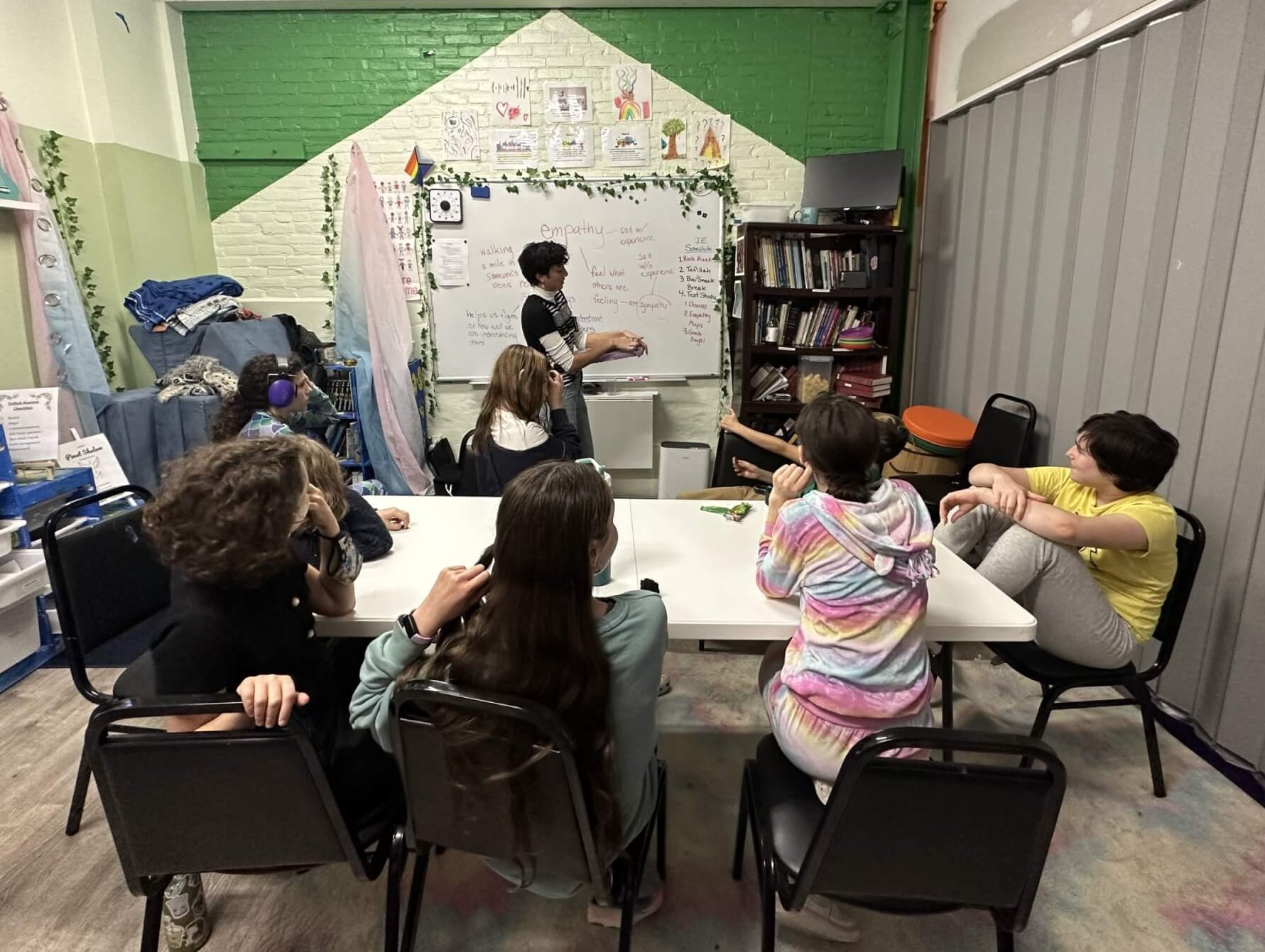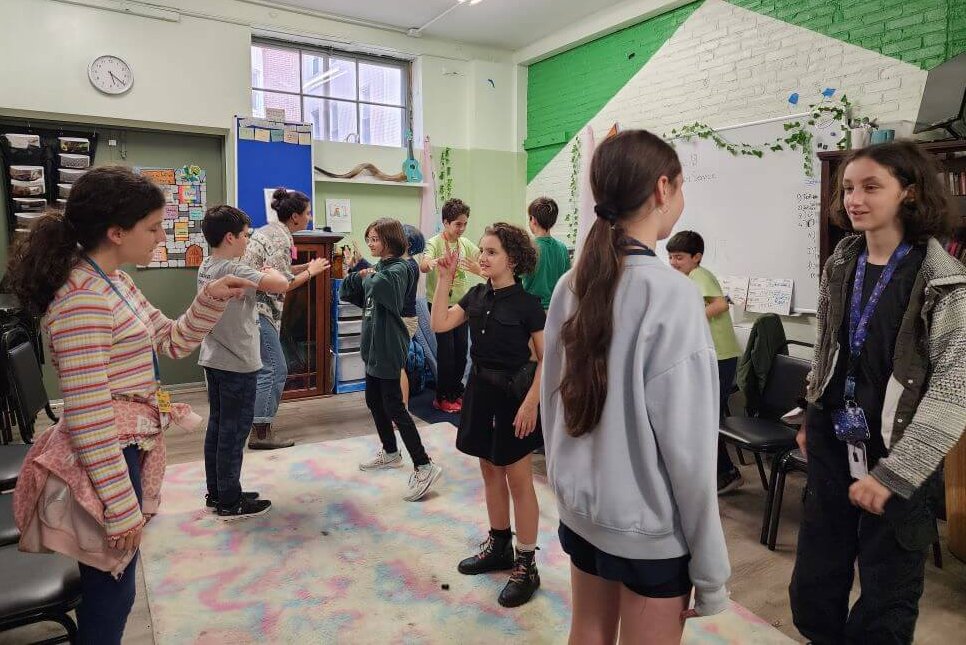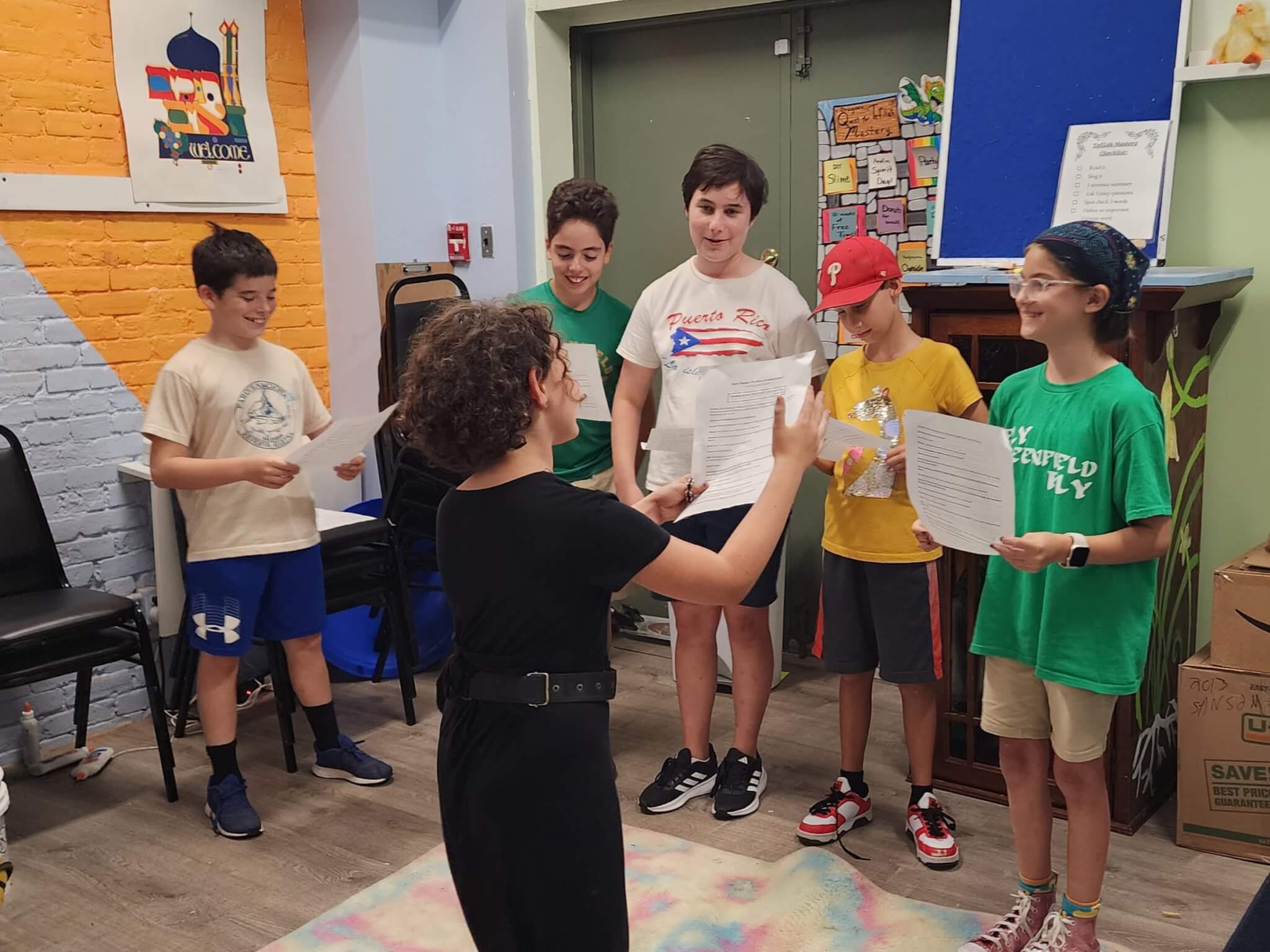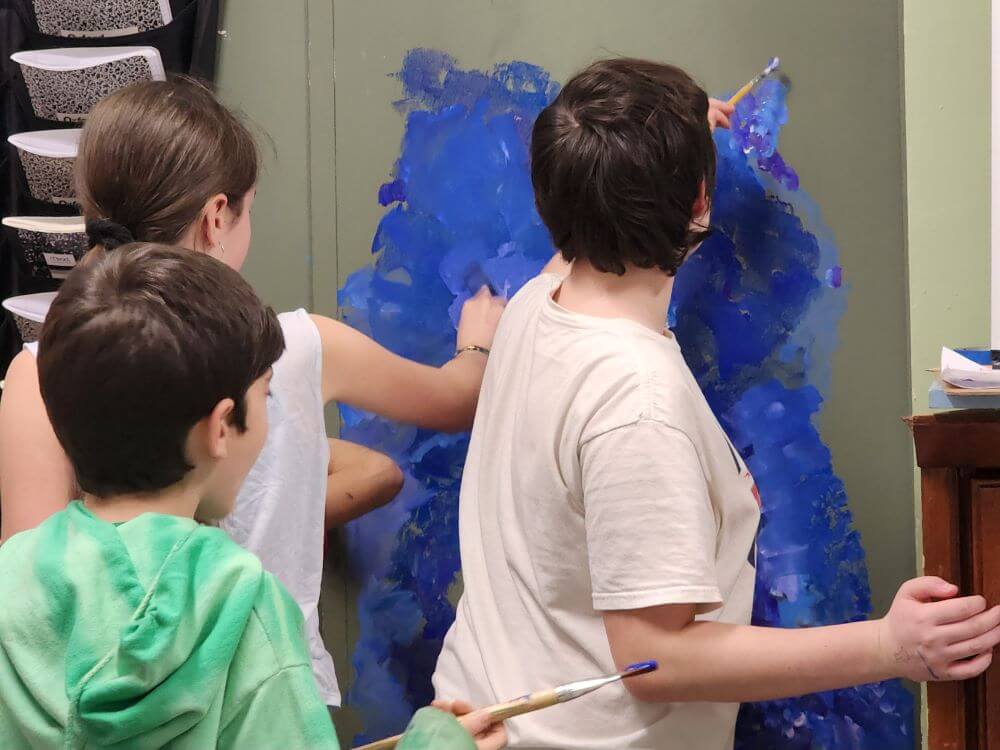
If we take the time to reflect on it, we can all remember a time in our lives when we felt a lack of autonomy. I might go as far as to argue that adolescence is the period in our lives where we are most aware of this absence. With this in mind, I sought to explore the concept of being a mindful main character with the Anafim (5th-7th grade) learners in our first unit.
Our learners today have a relationship with the internet that even those of us who grew up with ever-shrinking technology can’t quite comprehend. More recently, I started to notice a particular concept going viral. This concept being, owning that you are the main character of your own life. I got attached to this idea and wanted to present it to the Anafim cohort as a means of self-empowerment and investigating intentionality. As the main characters of our own lives, our stories are ours to create. We get to choose the path we take, and in so doing, we get to be intentional about these choices. We examined this idea through our exploration of Toldot, which is debatably full of characters who are either very mindful of who they are and their choices or very much not so.

That being said, when I first introduced the big idea of our unit to the kids, they were skeptical. They told me that they don’t get to make choices for themselves. They told me that all the decisions in their lives are made for them. They even quoted grownups in their lives who had explicitly told them that they are not the main characters of their own story. This surprised me and was disheartening but I was up to the challenge of helping them unlearn this perspective.
When we arrived at the end of our unit, it was time to come full circle and dissect what autonomy means to us. We defined it as “the ability to make your own choices”. We sat with this and the kids reflected on how “people try to make it seem like we have autonomy but we don’t” and that “freedom has limitations because there are certain expectations we must meet”. We considered how many of the choices others make for them are motivated by a desire to preserve their safety and well-being. This comes through clearly in the text we were examining. The story of Toldot ends with Yitzchak and Rivka telling their sons whom they are permitted to marry. The Anafim learners were unsettled by this. We got to talking about how marriage is a commitment that both parties should have full autonomy over. We couldn’t help but notice how the women mentioned in this part of the text, like many others in this story, didn’t get a voice. We imagined what these characters might have said if given the chance, and empathized with how it feels to be silenced. That being said, we were also able to empathize with Rivka’s motivations here, and came to understand that she only wanted to protect her family, even though she was going about it in an authoritative way.

I then prompted the kids to consider how they can take advantage of the autonomy they do have, or ask for more where they feel they need it. One kid suggested creation as a way to exercise your autonomy. They shared how creating stories allows them to have a space where they have full control. In this discussion, we also reflected on the ways in which main characters lack autonomy because sometimes life plays out unpredictably.
We settled on the understanding that autonomy is something we get to ask for more of and flex to meet our need for control. We get to exercise our autonomy when we are intentional about the choices we make and what we commit to. This discussion, as well as this entire unit, helped me realize, as an educator, that I have the opportunity to create space for kids to have more autonomy. We can make decisions that affect the cohort as a group. We can create a brit (two-way promise) that is reflective of commitments we all genuinely stand by. By making space for this, I can better prepare learners for a future where they can make intentional choices and be mindful of how they want to move through the world.

